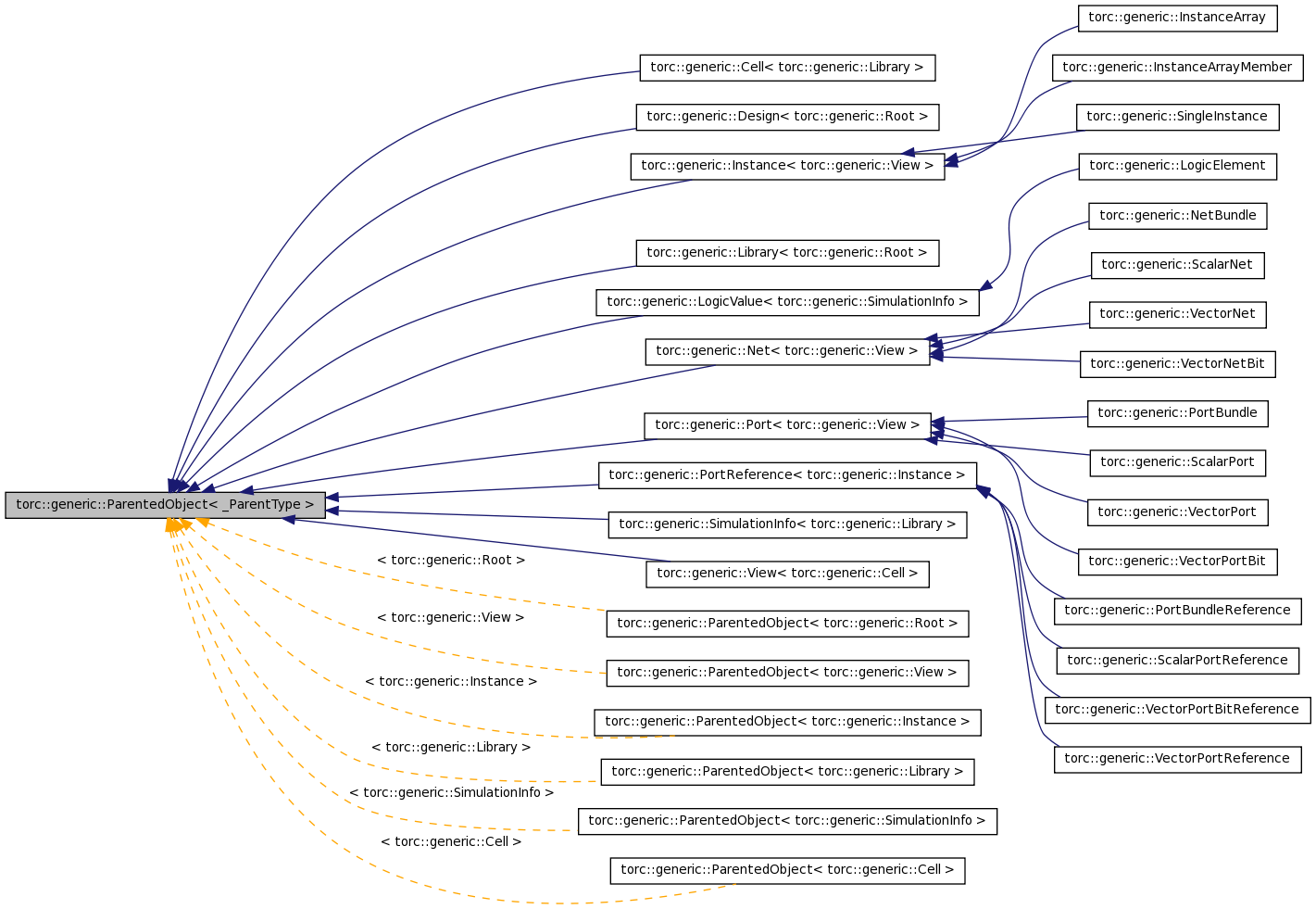torc::generic::ParentedObject< _ParentType > Class Template Reference
An object that has a parent. More...
#include <ParentedObject.hpp>
Inheritance diagram for torc::generic::ParentedObject< _ParentType >:

Public Member Functions | |
| const boost::shared_ptr < _ParentType > | getParent () const throw () |
| virtual void | setParent (const boost::shared_ptr< _ParentType > &inSource) throw () |
Private Member Functions | |
| ParentedObject (const ParentedObject< _ParentType > &source) throw () | |
| ParentedObject< _ParentType > & | operator= (const ParentedObject< _ParentType > &source) throw () |
Private Attributes | |
| boost::weak_ptr< _ParentType > | mParent |
Detailed Description
template<typename _ParentType>
class torc::generic::ParentedObject< _ParentType >
An object that has a parent.
EDIF 2 0 0 defines a nested hierarchy of objects in a design. As such most of the non-root elements have a corresponding parent object. However, the type of parent depends on the type of object. The ParentedObject template therefore provides a mechanism for storing a pointer to the parent object.
Definition at line 41 of file ParentedObject.hpp.
Member Function Documentation
template<typename _ParentType>
| const boost::shared_ptr< _ParentType > torc::generic::ParentedObject< _ParentType >::getParent | ( | ) | const throw () [inline] |
Get a pointer to the parent object
- Returns:
- Pointer to parent
Definition at line 105 of file ParentedObject.hpp.
template<typename _ParentType>
| void torc::generic::ParentedObject< _ParentType >::setParent | ( | const boost::shared_ptr< _ParentType > & | inSource | ) | throw () [inline, virtual] |
Set a pointer to the parent
- Parameters:
-
[in] inSource Set a pointer to the parent
Definition at line 116 of file ParentedObject.hpp.
The documentation for this class was generated from the following file:
- torc/generic/om/ParentedObject.hpp
 1.5.6
1.5.6